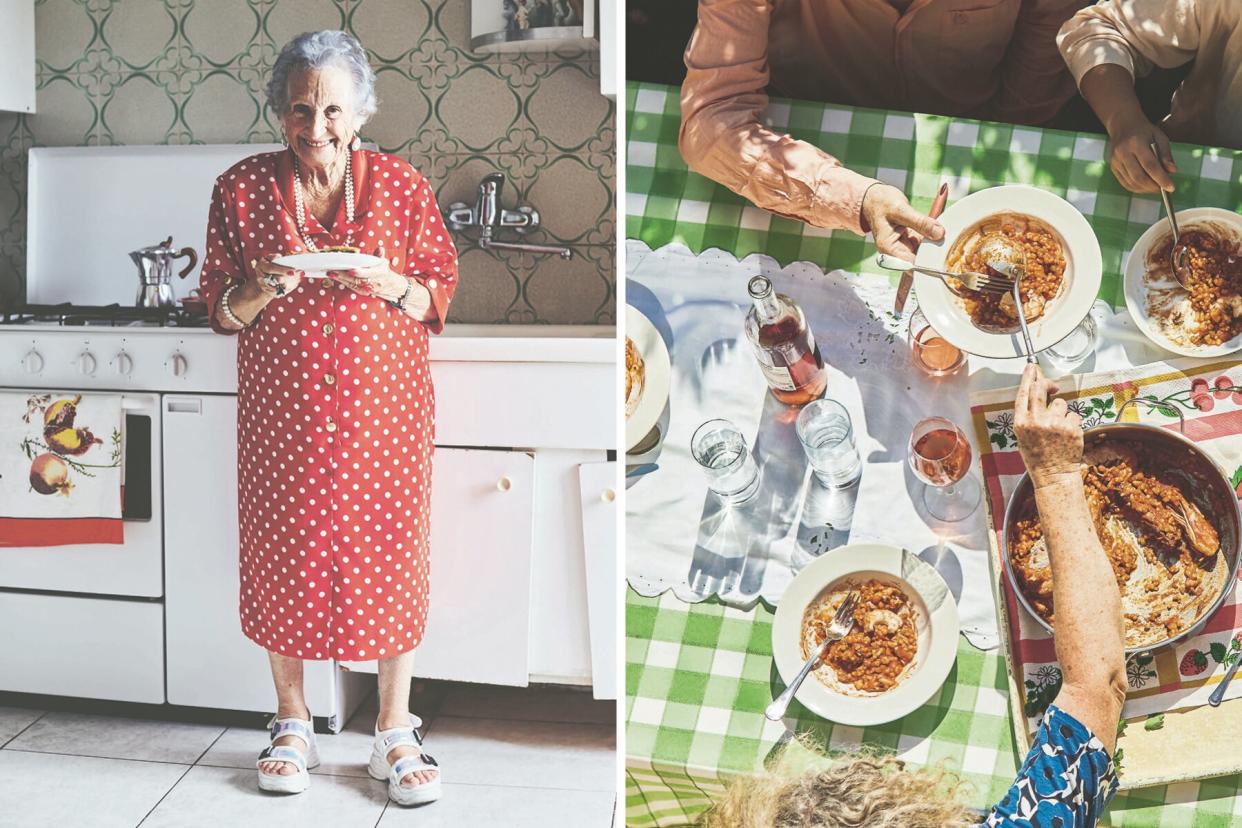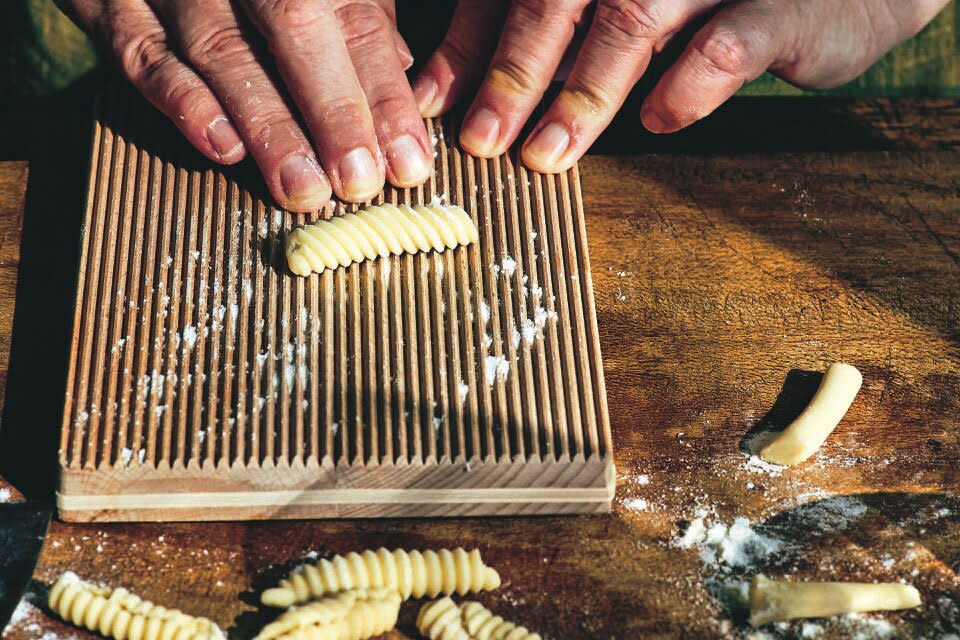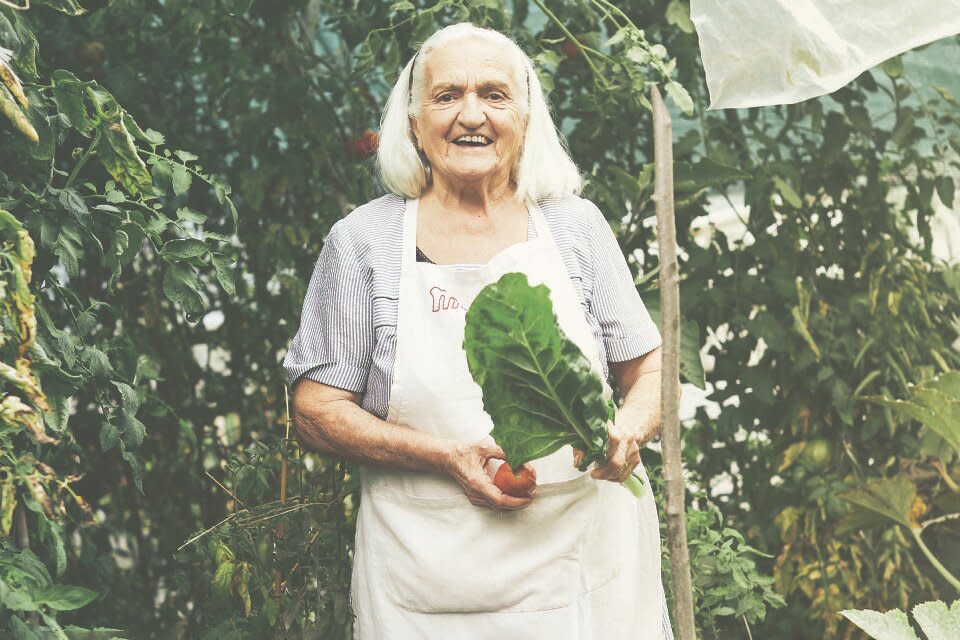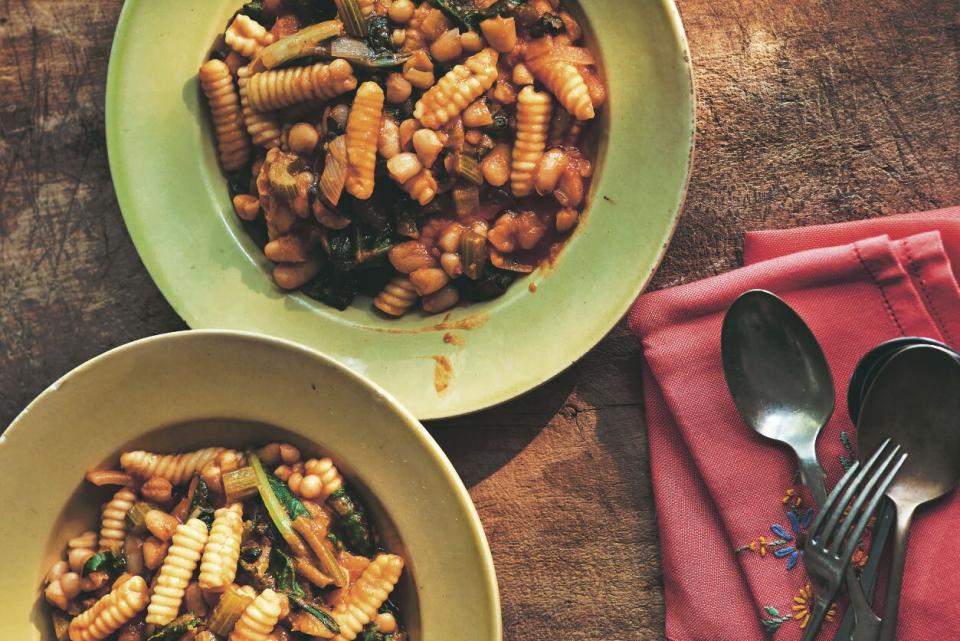4 Important Lessons on Life and Italian Cooking That We Learned From the Pasta Grannies

Lizzie Mayson
A group of female Italian cooks in their 70s, 80s, and 90s have become famous for the food—especially the pasta—that they make at home. They're known as the Pasta Grannies and are beloved all over the globe thanks to a series of YouTube videos that document them making pasta by hand in their own kitchens.
Through these videos and two cookbooks, the Pasta Grannies have let us into their kitchens and warmed our hearts. We can watch them and learn more about the traditional ways of making pasta—and pick up a few life lessons along the way.
Related: Italian-American Recipes for Sunday Supper

Lizzie Mayson
The Pasta Grannies Project
The Pasta Grannies never sought fame. The series began as an effort to document the variety of pasta shapes that are specific to each region and micro-region of Italy. Starting in 2015, Vicky Bennison, the project's creator, aimed to capture the last generation of pasta makers who grew up making the dish before modern conveniences. These expert elders held a unique point of view: They saw tremendous changes in society from the second half of the 20th into the 21st century. Most of them raised children who left the home for other types of work—it was no longer a woman's role to cook for her family—leaving the grannies with the key to the past.
The videos led to a cookbook, Pasta Grannies, The Official Cookbook: The Secrets of Italy's Best Home Cooks, which includes a wide array of regional variations on pasta dishes. Then, during the height of the COVID-19 pandemic, the Pasta Grannies channel saw a 60 percent increase in viewership. Fans reached out to Bennison to tell her how much comfort they took from watching the grannies during that stressful time. Yes, many viewers found themselves with unstructured time on their hands, but Bennison knew there was another essential ingredient: "These videos are a visual warm hug," she says.
There was also a demand for more of the grannies' recipes, so their second book, Pasta Grannies, Comfort Cooking, explored foods beyond pasta. Inside, you'll find savory pies and pizzas, rice dishes as soothing as any noodle dish, stews, and a few favorite desserts.
What We've Learned From the Pasta Grannies and Their Cooking
It's universally understood that food has the power to comfort. Ultimately, Italian comfort cooking is no different from that of any other culture. "Everyone understands the feeling of being cooked for, and when someone is doing that for them in a nurturing way, it helps them to cope," says Bennison.
Watching Maria make her rich, savory lasagna with pork and sage (complete with eight tiers of spinach noodles made from dough she whizzes together in a food processor!), layered with a slowly simmered sauce is pure catharsis. What she shares is not simply her recipe or technique—it's the desire to care for the people in her life. Maria, the most watched of all the Pasta Grannies, has cooked this dish for more than 70 years. What else can we learn from the Pasta Grannies?
Related: Silician Recipes That Transport You to the Italian Island
Live (and Cook!) in the Moment
For the grannies, making pasta has led to a lifetime of routine and ritual—and it keeps them going. Calming and tactile, "pasta and dough-making requires you to stay in the process," Bennison says. They show us that working with your hands, taking the time to get the feel of the dough, and knowing how to adapt to what you have on hand is pleasurable and calming. Simple physical tasks keep us focused in the present, as many contemporary mindfulness practices recommend.

Lizzie Mayson
Use What You Have
Whether you grew up in a time when you could always run to the store for ingredients or learned to cook in the modern age—where successful cooking means trying to match a beautiful dish from Instagram—the Pasta Grannies have a guiding principle to share: Use what you have. They have always adapted recipes to work with what is in their kitchen or garden.
For example, when Feni prepares her Pizza con 'Scarola (or Escarole Pie), the 97 year old makes a quick, unyeasted pizza dough. The pie traditionally uses foraged greens, but her recipe calls for escarole as a substitute to suit our modern lifestyle. "If bitterness is not your thing, or you cannot track down escarole, then use Swiss chard," says Bennison.
The Pasta Grannies know that cooking is not about perfection or trying to impress. Another granny, Marietta, who is now 99 years old, regularly makes Tagliatelle with Farmer's Sauce from Calabria. In her younger years, she used to walk an hour and a half to work on a farm and return home with vegetables for dinner. When she makes the pasta today, she uses whatever vegetables she has on hand. Her recipe is not really a recipe as much as an echo of what's available in her orto (or garden) or on her part of the countryside; the seasons also play a roll, says Bennison.
So, if you can't find a vegetable in the ingredient list, don't fuss. Do as Marietta does and find something that is fresh and at its best, says Bennison.

Lizzie Mayson
Share What You Make
Many of the Pasta Grannies live in tight-knit communities, where everybody is in the same boat and there is (and always has been) a sense of belonging. There, their expertise is valued. They lived through World War II rationing and through hardships of all kinds that required a lifetime of activity. They are hardworking, pragmatic, and resilient—yet there is always room for laughter.
A lesson for us all is that cooking together should be a joyful experience. "Making pasta has always been a group process; often, three or four women gathered to roll and shape the dough, using it as an opportunity to catch upon local news, share family updates, and sing together. It provided a great sense of community," says Bennison.
This community is another type of comfort—and widely acknowledged as one of the main factors in longevity. We can learn from the grannies and invite friends and family into our homes to make a meal or bake cookies together. The benefits we gain from being connected to others through the ritual of food is undeniable.
Perspective Is Everything
The grannies have seen hard times, and have endured thanks to the power of perspective. They take the bitter with the sweet and keep on pushing forward. Lessons and recipes that stand the test of time also teach us this: Even when our world seems to have turned upside down, a legacy recipe can be made and shared. As Ida, who is 94, told Bennison at the height of the pandemic, "Remember, these things will pass." Who wouldn't draw comfort from those words of wisdom?

